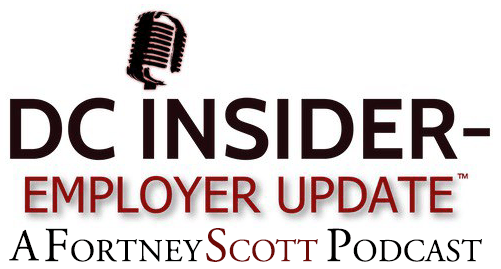February 7, 2025
On February 5, 2025, six Plaintiffs (the American Federation of Labor and Congress of Industrial Organizations (AFL-CIO); The American Federation of Government Employees (AFGE); The American Federation of State, County & Municipal Employees, AFL-CIO (AFSCME); Service Employees International Union, AFL-CIO (SEIU); The Communications Workers of America, AFL-CIO (CWA); and Economic Policy Institute (EPI) filed a complaint in the U.S. District Court for the District of Columbia against the Department of Labor (DOL), Labor’s Acting Secretary Vince Micone, the U.S. DOGE Service (USDS), and the U.S. DOGE Service Temporary Organization. The complaint seeks declaratory and injunctive relief to prevent the “Department of Government Efficiency” (DOGE) from accessing DOL’s information systems and the sensitive data therein concerning both federal employees and private citizens. The complaint explains how DOGE, sanctioned only by Executive Order 14158 (Establishing the President’s Department of Government Efficiency), functions as a network of DOGE-related offices, teams, and roles overseen by Elon Musk within the Executive Office of the President and implanted within each federal agency. The complaint describes DOGE’s pattern as overtaking federal agencies without statutory authority, seizing their information systems, threatening career civil servants’ resistance with adverse employment action, and unilaterally dismantling or restructuring the agencies. As DOL is DOGE’s next posited target, plaintiffs seek to prevent DOGE from unlawfully accessing DOL’s sensitive information systems, including such systems maintained and managed by the Federal Employees’ Compensation Act Claims Administration, the Wage and Hour Division, the Occupational Safety and Health Administration, and the Bureau of Labor Statistics. These systems include medical information, financial information, and personnel information, as well as the identities of anonymous whistleblowers. Plaintiffs allege that DOGE’s actions are unconstitutional because DOGE lacks lawful authority to either direct agency actions or access statutorily restricted government systems. Rather, DOGE’s function is limited to advising and assisting the President. Plaintiff’s claims mostly arise under the Administrative Procedure Act, which protects individuals harmed by “arbitrary and capricious” final agency actions and provides court intervention when such harm occurs. Specifically, Plaintiffs accuse DOL of unlawfully threatening federal employees with termination, violating information privacy statutes by instructing and disclosing confidential and private records, creating new rules without meeting “notice and comment” requirements, and abusing its discretion. As relief, Plaintiffs asked the Court to declare DOGE’s access to DOL’s systems as unlawful. Plaintiffs also request a Court order forbidding DOL from granting DOGE access to DOL’s systems, taking adverse personnel action against employees who refuse providing DOGE with unlawful access, and providing non-public DOL information to any person with a conflict of interest. This is the first complaint filed challenging DOGE’s access to sensitive government information systems.



















